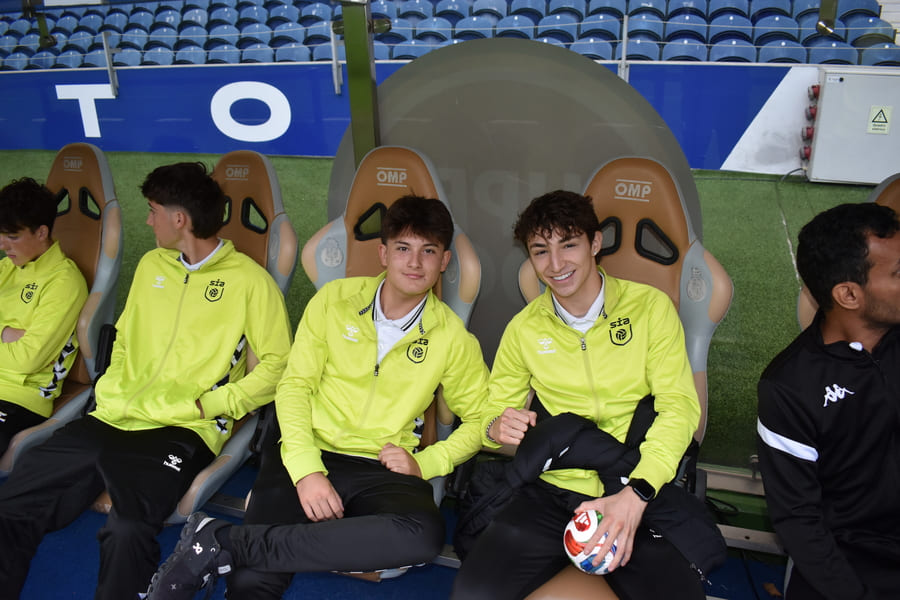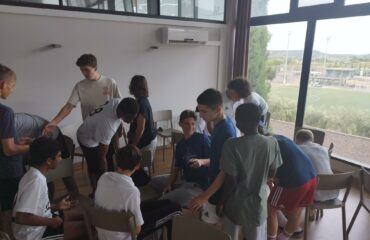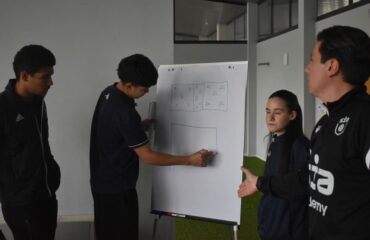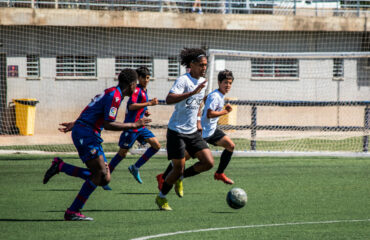In modern football, talking about performance is not limited only to technique, tactics, or physical ability. There is a silent, deeply influential factor that often goes unnoticed: the environment. Your social circle —your friends, your family, your teammates, your coach, and even your role models— shapes your athletic development more than you imagine. At SIA Academy we see it every day; that is why we pay so much attention to building a positive, competitive, and healthy atmosphere for our footballers.
Table of contents
The direct influence of the social circle on the player’s mindset
A footballer is a sum of what they think, what they feel, and what they absorb from the context that surrounds them. If that context is socially stimulating, the player tends to progress faster. If it is a negative, unmotivating, or conflictive environment, their performance suffers. As José Luis, psychologist at our academy, explains: “The quality of a player’s environment can accelerate or slow their evolution, even more than their own talent.”
Many young athletes underestimate the impact of the people around them: friends who support or hinder, teammates who push or create pressure, family figures who reinforce discipline or weaken it. The right social climate boosts confidence, while a toxic one can weaken even the most capable player.
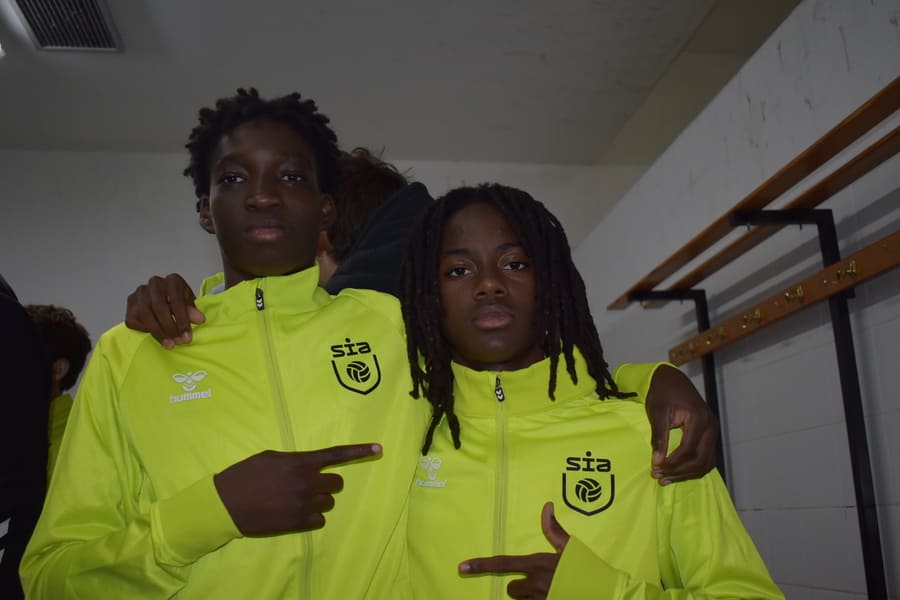
The environment within SIA Academy and why we work in first person
At SIA Academy we make an effort to create an ecosystem where every interaction adds value, because we know that each gesture, each conversation, and each bond has a real effect on performance. Our social environment is designed so the player feels accompanied, listened to, and challenged at the same time. We do not believe in competitive isolation; we believe in well-guided coexistence.
We work in first person because we feel part of each player’s process, and because we understand that the social environment we provide must be an example of professionalism, closeness, and constant motivation. Our coaching staff and psychological team maintain continuous communication to ensure every footballer receives the support they need both on and off the pitch.
How your social environment shapes your discipline and habits
Performance is not just talent: it is routine, consistency, and habits. And those habits come from the social environment. If your friends prioritize rest, proper nutrition, and commitment, you will tend to do the same. If the social circle minimizes effort or normalizes a lack of discipline, you will very likely adopt those behaviors.
In youth football, this difference is decisive. In our experience, players surrounded by teammates and tutors who value continuous improvement show higher peaks of evolution and maintain their motivation even during difficult moments.
José Luis summarizes it this way: “Athletes learn by imitation. If the environment is disciplined and emotionally healthy, the player naturally copies that model.”
The pressure of the social environment and how to manage it
Not everything in the social environment is positive by default. External pressure —family members who demand too much, friends who judge, teammates who generate constant comparisons— can cause blocks, anxiety, and fear of mistakes. At SIA Academy we focus on teaching our footballers to distinguish between constructive pressure and pressure that subtracts, so they can develop a strong, balanced personality capable of overcoming demanding environments.
Through individual sessions and group dynamics, we create safe spaces where players can express what they feel, identify negative influences, and strengthen social bonds that provide stability.
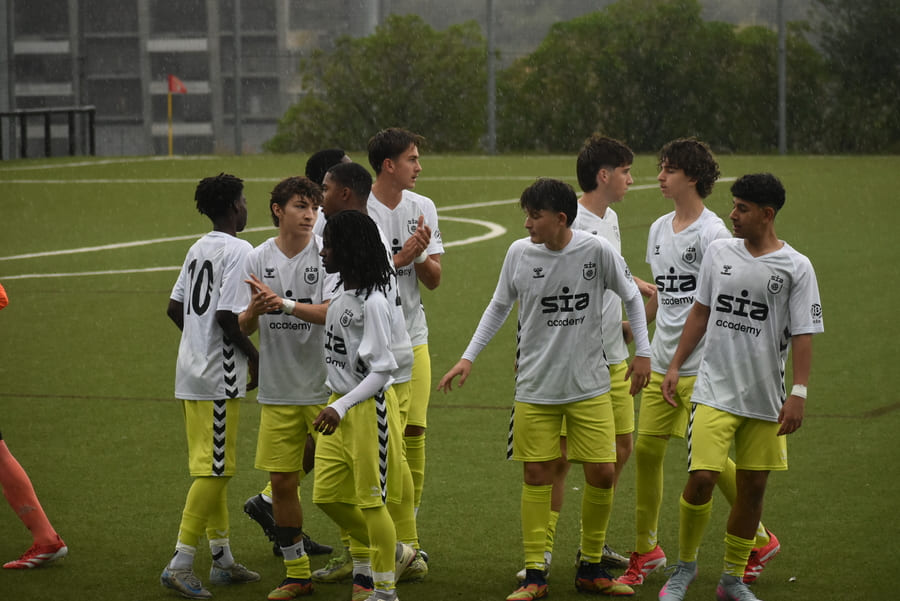
How to consciously choose your social circle to perform better
It is not about isolating yourself, but about intentionally choosing relationships that add value. One of the lessons we reinforce most at the academy is that every player should know how to surround themselves with people who drive their goals. The ideal social circle is one that:
- Supports your goals without harmful pressure.
- Inspires discipline and self-improvement.
- Understands the sacrifice required to be a footballer.
- Promotes emotional balance.
- Avoids toxic comparisons and gossip.
This type of social environment acts as a silent engine: it is not seen on the field, but felt in every decision.
Your performance is a reflection of your environment
Football is a team sport even before stepping onto the field. The player does not compete alone: they compete with their history, their social circle, and the ideas others have planted in them. That is why at SIA Academy we commit to offering an environment that enhances, inspires, and cares, because we believe that without the right context, no talent develops fully.
If you want to improve your performance, do not look only at your training sessions: also look at who surrounds you, what reinforces your daily life, and which influences shape your character. In the end, the environment does not just accompany you: it transforms you. And choosing it well can be the difference between a footballer who stays halfway and one who reaches their maximum potential.



